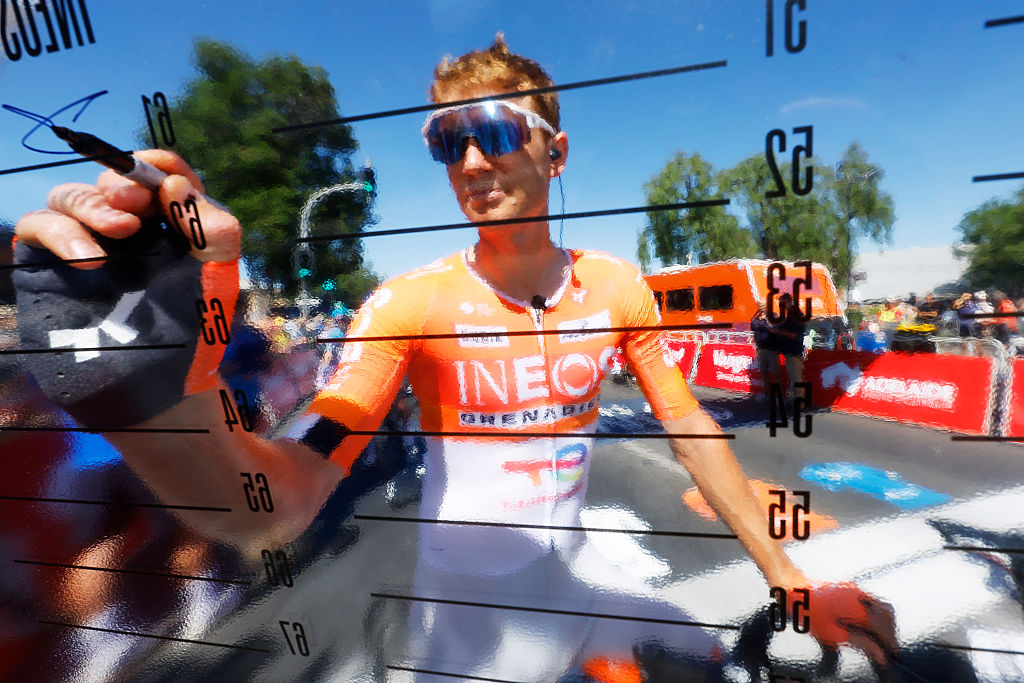Tuft joins group working to foster Canada's talent
$400,000 Global Relay fund helps bridge development gap
The latest race content, interviews, features, reviews and expert buying guides, direct to your inbox!
You are now subscribed
Your newsletter sign-up was successful
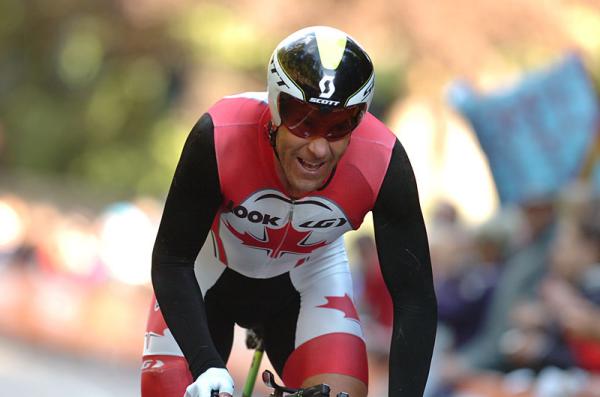
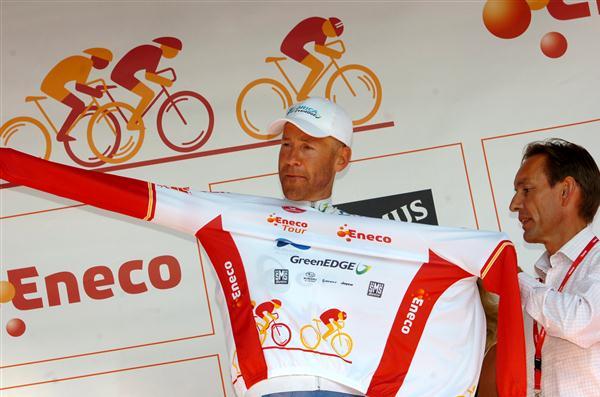
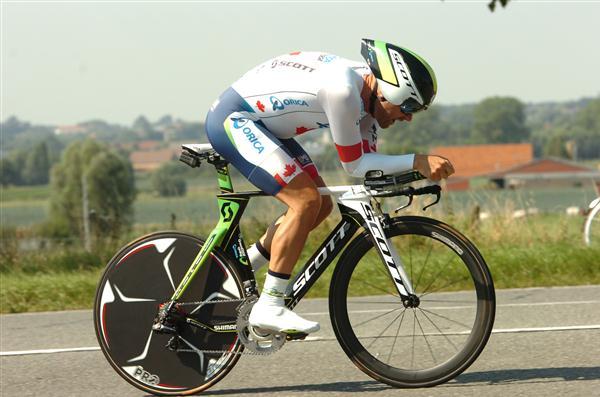
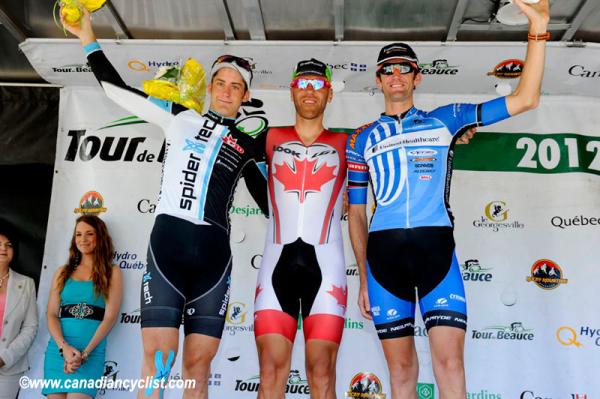
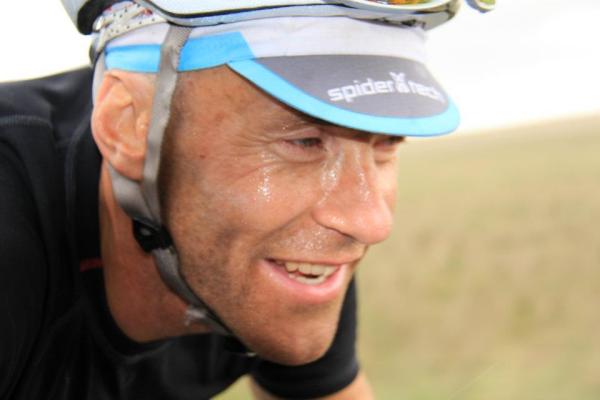
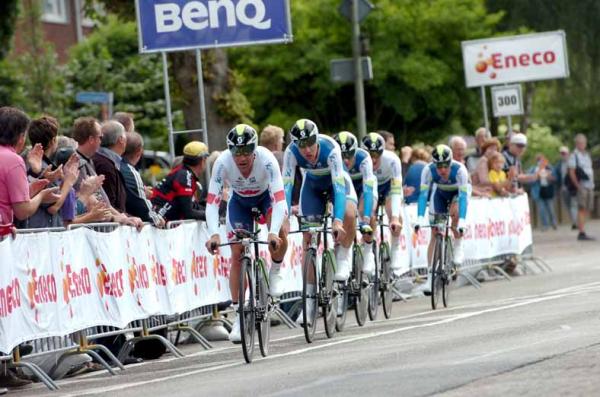
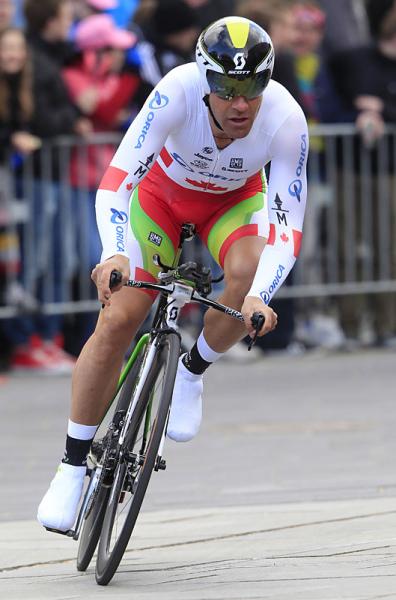
The next generation of cycling talent in Canada has been given a boost in the form of a fund created by communication company Global Relay which will be managed by five professional cyclists including Orica-GreenEdge rider Svein Tuft.
The $400,000 program was unveiled this week in Vancouver to benefit riders from the ages of 19 to 25. It will rely on a board consisting of Tuft, Andrew Pinfold, Ryan Anderson, Will Routley and Erinne Willock to scout new talent that can benefit from help in getting equipment, training, travel expenses to race with the national team, mentoring or contacts in the industry, for example.
The group has already helped a young rider, Cody Canning, by using connections to help him with a guest ride for Pure Black Racing in the Tour of Southland, and a chance to ride with the team again in 2013.
Tuft told Cyclingnews he noticed Canning at the BC Superweek races and on top of his solid results, noticed he had a good attitude. It was Canning's approach to the sport that earned him the ticket to New Zealand. "That's what's more important over the long term," Tuft said. "He had a good race down there and was a solid teammate. He rode really well and they were happy with him. That's a great thing to see, he's going to gave a chance to race with them next year."
It is just that type of assistance that Tuft sees as being the responsibility of senior riders such as himself and his fellow board members.
"We all have good connections in the cycling community. Andrew Pinfold had a good relationship with one of the managers at Pure Black, and sometimes it's connections like that that are even more valuable than even monetary funding. It worked out, and that's just a little taste of what can happen for these riders."
Tuft hopes that the mentoring, financial support and other perks will help Canada continue to develop its talent in the absence of its top team, Spidertech, which will not exist in 2013.
The latest race content, interviews, features, reviews and expert buying guides, direct to your inbox!
"It is difficult for under 23 riders to make that next jump to a Continental team, and get the support and sponsorship they need to get to that next level, and see what they have."
It is important for the country to build a solid base of talented riders in the next few years: while Canada had several Continental teams racing in the Americas Tour and qualifying points ahead of the Beijing Olympics in 2008, it lagged in the lead-up to the 2012 Olympic Games, and as a result only qualified a single spot for the men's road race and time trial.
Tuft sees a promising future for Canadians, with riders like Hugo Houle signing with AG2R, and David Boily and Guillaume Boivin joining the World Tour with Cannondale. They join Giro d'Italia winner Ryder Hesjedal, Tuft and his teammate Christian Meier and FDJ's Dominique Rollin at the top level of the sport.
"This year is going to be a really good year for Canadian cycling at the WorldTour level. It's going to be a bit rough in the sense we don't have a stand out Pro Continental team like Spidertech, but we have a lot of riders at the WorldTour level now."
A steady progression
Tuft came into the sport relatively late, only reaching the sport's top level in 2009 when he signed with the Garmin team. While he chooses not to focus on the negative aspects of the sport in light of the recent doping scandals of Lance Armstrong, and of his fellow Canadian Michael Barry who confessed to doping, Tuft admits that the rampant doping in the European peloton affected his progression as a cyclist.
"In my case, I tried to go to Europe, I did the world championships and a few other events throughout the year. I personally thought I wasn't capable and that it wasn't the place for me. I wasn't interested. I wanted to stay where it was fun for me. That's why I came back and stayed with a team like Symmetrics for so long."
Tuft spent 2004 through 2008 racing for the Canadian Continental team Symmetrics, racking up solid performances which earned him a chance to represent his country at the Beijing Olympics. He was then signed with Garmin for his first WorldTour stint. He doesn't regret stepping away from European racing even with the subsequent success he's enjoyed with GreenEdge.
While his initial progress might have been hampered by the rampant use of EPO in the peloton a decade ago, Tuft says it is hard to say whether the results he can achieve now - this year he had wins in the Duo Normand and Eneco Tour time trials - are due to the peloton being cleaner or just years of progression as a rider.
"It's easy to do your first year in Europe and decide it's too hard, it's too crazy, but ultimately you need to spend a couple years learning the ropes and the pace, and the difficulty of that racing. It's something you need to adapt to over time. It's really just time.
"I was fortunate enough to come back with a team like Garmin and then GreenEdge and have good opportunities to develop as a rider instead of being forced into it. People believed in me, which made my life that much easier, I could take time to progress and develop into the rider I am now. I feel pretty confident now racing in Europe. I think every year it's getting better and better (in terms of the peloton being clean) but I often think too, you develop as a rider."
Tuft said that he would advise his young fellow Canadians to take their time and win some races at home before deciding to test themselves against the world's best.
"I think sometimes guys are itching to get to Europe and they go to Belgium, which I consider as one of the hardest places in the world to learn how to race.
"I can tell you, it's never going to be easy to win a race anywhere in the world, but it's a lot harder in Europe. In my opinion, there's no rush. I use myself as an example. I didn't come over until 2009 - when I was 32.
"There's a lot of time to work on your craft and be comfortable and confident in yourself before you take that step. It's a very different world.
"I'm a firm believer in winning races in your local area and if you do, then teams will notice you if you're a strong rider, and with our help we can put you in touch with those teams. It's a much more gradual progression rather than being thrown into the deep end in Belgium, France or Italy."
Tuft also sees the return home by riders such as himself to the Canadian UCI races such as Tour de Beauce as an important factor in the development of domestic talent.
"I remember doing my first edition of Tour de Beauce - it's always been Canada's most's competitive stage race - it was a good eye opener. We had teams like Mercury and Mapei there, and you saw guys who were at a whole different level. You could see how the professionals race, and it brings you to another level."
He also was able to measure himself against riders like Eric Wohlberg and Gord Fraser. "I was constantly getting schooled by those guys. It was so hard, but those are the lessons that stuck. That's why it's important to continue racing in your home country."
Tuft raced in the Tour de Beauce and BC Superweek in 2012, and hopes to spend some time racing on home soil again in 2013 so that he can scope out the talent which can benefit from the Global Relay fund.
"It helps with what we're doing now, you can see who's got talent and a good work ethic and attitude. You see all of that character in the peloton."

Laura Weislo has been with Cyclingnews since 2006 after making a switch from a career in science. As Managing Editor, she coordinates coverage for North American events and global news. As former elite-level road racer who dabbled in cyclo-cross and track, Laura has a passion for all three disciplines. When not working she likes to go camping and explore lesser traveled roads, paths and gravel tracks. Laura specialises in covering doping, anti-doping, UCI governance and performing data analysis.
